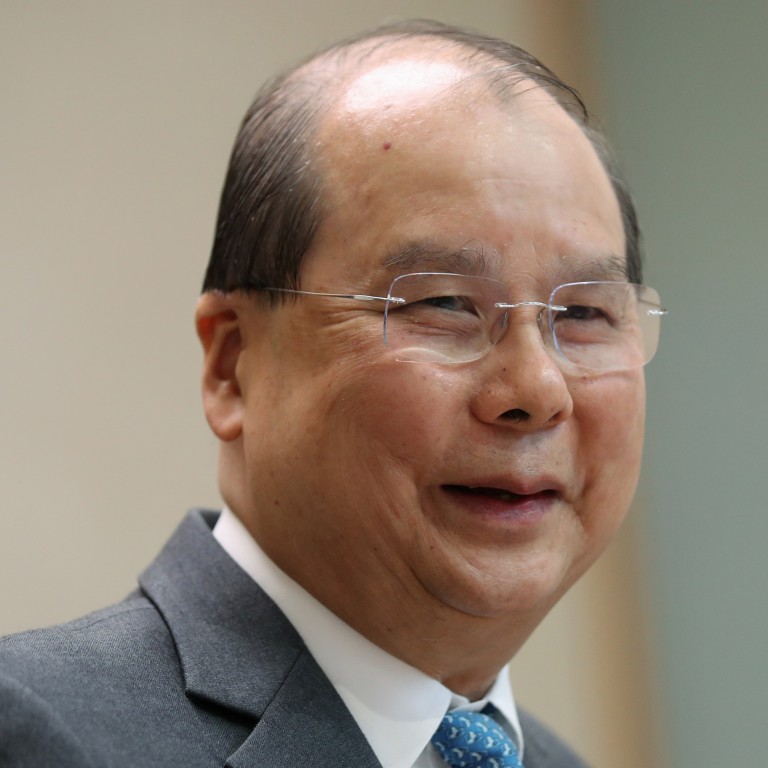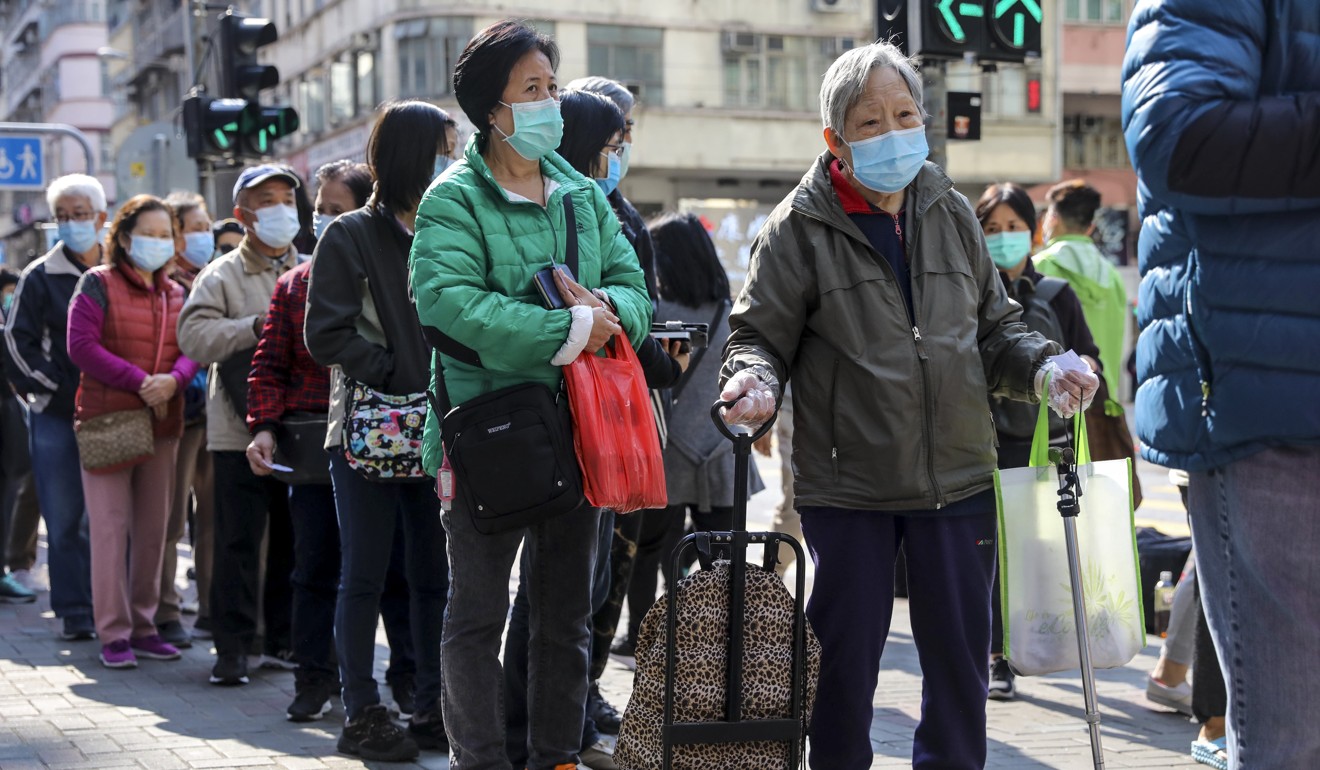
Hong Kong lawmakers approve HK$30 billion coronavirus relief package after 10-hour session, though concerns remain over who benefits
- Package passes with healthy majority, though lawmakers across parties push for universal cash handouts, express fears about insufficient monitoring
- Pan-democrats reserve particular criticism for plans to fund local mask production, which government admitted on Friday was going slowly
Hong Kong lawmakers approved a HK$30 billion (US$3.9 billion) government coronavirus relief package on Friday, after spending 10 hours grilling top officials on details of its disbursement during a Finance Committee meeting.
A majority of 59 lawmakers backed the funding application, with three pro-democracy lawmakers – Eddie Chu Hoi-dick, Raymond Chan Chiu-chuen and Cheng Chung-tai – voting against it, citing the government’s reluctance to close the border and the lack of a universal cash handout.
While lawmakers supported the funding plea in general, many raised concerns over the implementation and monitoring of cash injections into various business sectors, in particular questioning the mask production subsidy scheme.

Both the opposition and pro-establishment camps pointed out that many sectors were getting no aid at all, while employees, unlike their bosses, would not receive direct payments.
They called for the government to do more, ranging from universal cash handouts to supporting businesses in securing bank loans.
Both camps also repeated calls for the government to set up an unemployment fund, something the welfare minister said there were no short-term plans for given the difficulties in checking the backgrounds of applicants.
The coronavirus aid package was announced by Chief Executive Carrie Lam Cheng Yuet-ngor last week.
More than half of the funding – HK$16.9 billion – will be used to provide one-off cash injections to retailers, food and drink service providers, transport companies, students, the arts and culture sector, guest houses, and travel agents.
Another HK$10.19 billion will focus on battling the virus, with support given to the Hospital Authority, local production of surgical masks, and the purchase of more protective equipment.
At Friday’s meeting, pan-democrat Claudia Mo Man-ching said she supported the package in principle.
“But I am worried we cannot monitor the funding once it is passed, and it would be treating the symptoms but not the cause,” Mo said, expressing worries that the city’s borders with the mainland were yet to be completely closed and that cross-border travel would make it difficult to curb the epidemic.
Chief Secretary Matthew Cheung Kin-chung said a committee would be set up to monitor expenses and that the government would report its status to the Legco every six months.
Massive relief package revealed as government plans to bail out struggling sectors
Accountancy lawmaker Kenneth Leung was among a number who criticised the government for having done nothing to ensure that distributed funds would trickle down to employees.
“The Hong Kong government is so lazy. How will employees benefit?” he questioned, comparing the scheme to Singapore’s fund, which has defrayed labour costs by offsetting 8 per cent of companies’ wages.
Some pan-democrats questioned the details of the subsidy scheme for surgical mask production, under which HK$1.5 billion would be earmarked for subsidising mask manufacturers to set up a maximum of 20 production lines, with the government pledging to buy 2 million masks a month for a year.
A subsidy of up to HK$3 million would be given to those able to set up a mask production line, with an additional HK$2 million for each extra line in the same factory, which they hoped could produce 500,000 masks per month.
Democratic Party lawmaker Lam Cheuk-ying, meanwhile, questioned how officials would make sure the money would be well spent.
“The government is shouldering all the costs, while the manufacturers will pay nothing and bag the profit. What is the regulated profit margin for them?” he asked.
But Secretary for Commerce and Economic development Edward Yau Tang-wah said the price at which the government would purchase the masks would be set later.
Pro-establishment legislator Paul Tse Wai-chun, meanwhile, said not all hard-hit industries had been covered by the relief package, including the city’s night clubs.
“The horse racing can go on, but it would be hard to keep on dancing,” Tse said.
Labour groups want cash for unemployed, say relief benefiting only business owners
He was also among numerous voices who said the public would benefit more directly had the government given cash handouts.
Michael Tien Puk-sun, from the same camp, suggested the government offer tax concessions to property owners so landlords could reduce rents by 50 per cent to help small businesses survive.
Separately, Cheung continued to backtrack from Wednesday comments in which he told lawmakers the outbreak had been “under control”, while urging people to stay vigilant due to infections in the community.
His remarks were criticised by microbiologist Ho Pak-leung, who said an outbreak could only be under control when there were no new confirmed cases for 14 days.
In his second clarification since Wednesday, Cheung said he “spoke took fast” and left out words that would have made his meaning clearer.
“It’s a misunderstanding that I was speaking on the epidemic. I was actually speaking on the overall situation, which is being monitored closely,” Cheung said.
“If I had caused a misunderstanding, I am sorry.”


